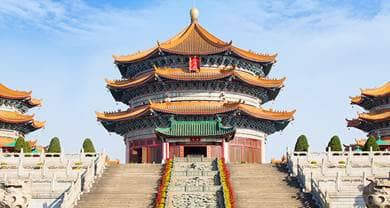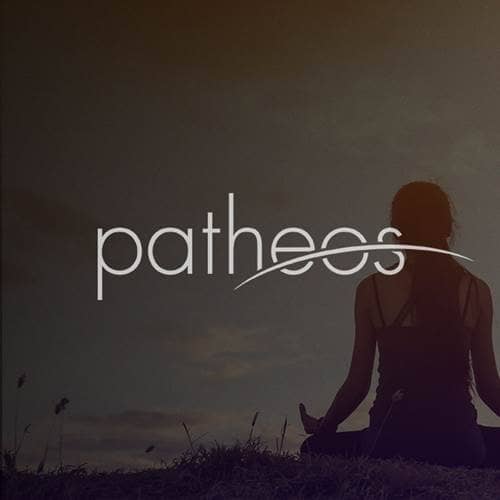- Trending:
- Pope Leo Xiv
- |
- Israel
- |
- Trump
- |
- Social Justice
- |
- Peace
- |
- Love

RELIGION LIBRARY
Taoism
Gender and Sexuality
A positive attitude toward women, or feminine qualities, has been characteristic of Taoism from the beginning. The first chapter of the Taode jing and several other chapters refer to Tao as "the Mother of all things." "To play the feminine part" (Ch. 10) is a constant theme of the text. Chapter 28 opens with the lines, "Know the masculine,/ Keep to the feminine." The rationale for assuming a feminine role is made clear in passages like this one from Chapter 61: "The Feminine always conquers the Masculine by her quietness, by lowering herself through her quietness./ Hence, if a great country can lower itself before a small country, it will win over the small country . . . "
The Taode jing was almost certainly written by and for men, at a time when perpetual conflict was the order of the day. Its solution to these conflicts was to encourage men to adopt a non-aggressive, or feminine attitude—to "gain through losing" rather than "lose by gaining" (Ch. 42).
In the Zhuangzi is an account of Liezi's disagreement with his teacher over the power of a shaman with whom Liezi had been initially quite impressed. When Liezi realized how little he knew he went home and took the feminine role in his own household, cooking and doing other chores usually done by his wife.
Taoist priests emulate Liezi and take the advice of the Taode jing, avoiding typically male activities and emulating attitudes expected of women, such as keeping a cheerful attitude or speaking in quiet tones. They may even urinate while seated as women do. Some also endeavor to gestate a divine embryo within their own bodies, evidence perhaps of "womb envy."
The idea of balancing male and female energies is fundamental to Taoism, and applies to women as well as to men. One early practice was ritual sexual intercourse between men and women who were not married to one another. These rituals followed strict guidelines, and the goal was the union of yin and yang energies. The act of intercourse was not motivated by lust or desire, men and women were equal partners, the experience was not centered in the genitals, and sexual climax was not the end or goal. Climax would be a way of squandering, rather than retaining, vital energies.
More frequently practiced were forms of internal alchemy that involved uniting yin and yang energies within an individual's body. Divine marriages with deities were one very ancient version of this practice. Another form of internal sexual alchemy involved cultivating the ability to direct the circulation of several types of body energy, then refining those energies within an internal "crucible," and directing the refined energy toward the brain. A special kind of saliva was created, which was then swallowed and again directed appropriately such that a divine embryo was created; this was then gradually nurtured until one's individual energy had merged entirely with one's original nature, creating an immortal being.
Equality of men and women was an essential tenet of the early Way of the Celestial Masters movement. Women could become priests and assume any rank. In the 2nd century C.E., the mother of the third Celestial Master, also the wife of the second Celestial Master, was an influential leader in the movement. In the 4th century C.E., a Celestial Masters priestess who had received several scriptures and instructions from divine beings during her lifetime became after her death one of the sources of the Shangqing revelations. She was only one of a number of female deities who revealed these scriptures to Yang Xi.
Sun Buer (1119-1182) was a key figure in the Quanzhen Taoist movement, one of the "Seven Perfected" who was initiated by the founder, Wang Chongyang, to spread the movement after his death. She was also a famous poet who left fourteen short poems about internal alchemy as well as several "secret" texts on the topic.
These are just a few of the many women who achieved fame within the Taoist tradition. Women became Taoist priests or nuns for a variety of reasons. Some were widows or former concubines seeking a way to live independent lives, some were women who wanted to avoid marriage, and some wanted an education that might otherwise not be available to them.
In addition, there are a large number of female divine beings associated with Taoism including Xiwangmu, the Queen Mother of the West; Doumu, the Dipper Mother; and He Xiangu, the only female member of the famed eight immortals of popular culture. Of these Xiwangmu is perhaps the most prominent, and her reach extends far beyond Taoism. Like all female deities, she is available to both men and women, but for women these deities are both sources of spiritual sustenance and role models.
Interestingly, women have never appealed to Xiwangmu for children, as women did to the popular Buddhist deity Guanyin, nor have they asked Xiwangmu to make them better wives or mothers. Taoist women have been more interested in spiritual techniques, power, and the ability to live independent lives. Perhaps this is one reason that issues surrounding gender and sexuality that are prominent in other religions—issues such as divorce, abortion, and homosexuality—do not play a significant role in the Taoist tradition.
From the beginning, the goal in Taoism has been to unite male and female energies. Just as men were encouraged to be more like women, women were encouraged (at least theoretically and doctrinally) to be more like men. Under the influence of culture and other religious traditions there are notable exceptions, and far more men than women became leaders within the tradition. Equality was an ideal, rather than the norm, and Taoism was certainly not able to transform the lives of Chinese women as a whole. Nonetheless, Taoist organizations were, like Buddhist monasteries, an essential outlet for women who wished to live more independent lives than the culture in general afforded them.
Study Questions:
1. Would Taoism argue that men and women are born into preconceived gender roles?
2. How does Taoism respond to issues of abortion, divorce, and homosexuality?
3. How does the Taoist ritual of sexual intercourse differ from promiscuity?
4. Why is Taoism a religion of empowerment to many women?










